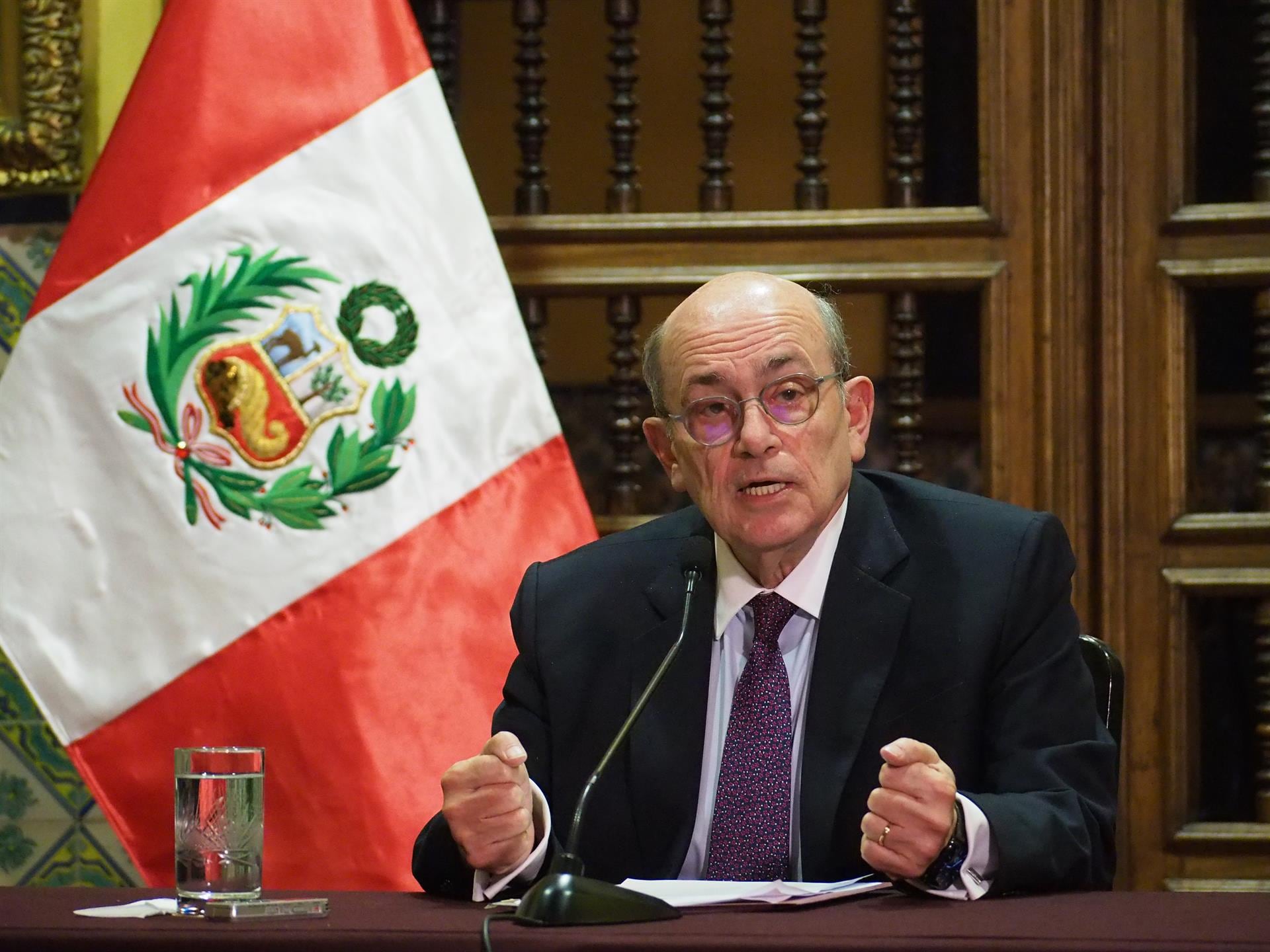
El Ciudadano
Original article: Desafuero de senador electo Miguel Ángel Calisto queda a firme: Suprema respalda investigación por presunto fraude al fisco
In a landmark ruling that significantly impacts the political career of Miguel Ángel Calisto Águila (Ind.- FRVS), the Supreme Court confirmed the lifting of immunity for the current deputy and elected senator, supporting the ongoing investigation by the Public Prosecutor’s Office regarding the crime of tax fraud.
The decision from the full bench of the highest court (Case No. 32.992-2025) nullifies his current parliamentary immunity, clearing the way for the Public Prosecutor’s Office to formally proceed with the investigation unimpeded.
The ruling reaffirmed a previous decision handed down by the Appeals Court of Coyhaique, which allowed the investigation to proceed against the legislator.
“In the case under review, the Public Prosecutor’s Office requested the lifting of immunity, considering it necessary to formalize the investigation and seek personal precautionary measures against Deputy Miguel Ángel Calisto Águila, accusing him of involvement as the perpetrator of the completed crime of tax fraud, as defined in Article 239, paragraph 3 of the Penal Code,” stated the ruling, which passed with 13 votes in favor and two against, specifically from Ministers Diego Simpertigue and Jean Pierre Matus, who voted to reverse the decision and reject Calisto’s dismissal.
Arguments of the Ruling Against Calisto
The Supreme Court’s opinion detailed the serious and credible evidence presented by the prosecution that led the ministers to uphold the dismissal.
The crux of the ruling focuses on the evaluation of the allegations made against Calisto. The court determined that the Public Prosecutor’s request surpassed the «plausibility check» required at this stage of the preliminary investigation.
Initially, it addressed the allegations made by the prosecutor, which outlined that Deputy Calisto was accused of defrauding the Treasury in the amount of $103,664,697 through the hiring of Carla Graf, a supposed advisor who allegedly never performed the functions for which she was hired as part of Calisto’s team in the Chamber of Deputies.
The ruling from the Coyhaique Court indicated that the parliamentarian allegedly colluded with his trusted friends Roland Cárcamo, an employee of the Aysén Health Service and his campaign manager during the 2017 election, and with Carla Graf, a special education teacher and Cárcamo’s partner, to fraudulently obtain resources from the Treasury.
To facilitate this, Graf was hired between 2018 and 2022 as a parliamentary advisor, despite her failure to fulfill any of the obligations of her contract. According to the Public Prosecutor’s Office, she received $103,664,697 without producing, writing, or delivering any studies related to the stipulated matters or supporting the deputy in any way.
In the dismissal, the prosecution added that these funds were used for various purposes. Among them, it is alleged they ended up in the accounts of another associate of Calisto: Felipe Klein – who had supposedly resigned from the DC – and who announced his candidacy for regional governor of Aysén in the 2020 primary elections and the regional council elections for 2024.
“Examining the evidence gathered thus far in the investigative file, it becomes apparent that the allegations made by the Public Prosecutor’s Office have merit and are plausible. Indeed, the prosecutorial entity has questioned the effectiveness of Ms. Carla Graf Toledo’s advisory role based on elements that, at least at this preliminary stage, appear serious and credible, such as the absence of reports or communications documenting the parliamentary tasks performed,” the Supreme Court indicated.
Another fact taken into account was that five advisors to Deputy Calisto declared they “do not know Ms. Graf within the parliamentary team.”
The court document elaborated on the detected irregularities, stating that “simultaneously and during the same period, Ms. Graf was employed as a teacher at Colegio Alianza Austral with a 40-hour work week and was on medical leave for several months.”
It also noted that police reports indicated various money transfers from Graf to Miguel Ángel Calisto, Roland Cárcamo, and Felipe Klein, which at least at this preliminary stage seem questionable.
“In particular, a transfer to Deputy Calisto coincides with the amount and payment date of the fees received by Ms. Graf as a parliamentary advisor,” it was stated.
“In conclusion, these factors allow surpassing the plausibility control regarding the accusations formulated by the Public Prosecutor’s Office concerning the existence of an offense and Deputy Miguel Ángel Calisto Águila’s participation, for the formation of a case against him; without prejudice, of course, to what is resolved in the criminal trial,” it concluded.
Defense Dismissed
The Supreme Court also addressed the arguments presented by Calisto’s defense, noting that they pertained to a premature substantive trial. The ruling articulated that the defense’s claims “exceed the plausibility check required at this pre-trial stage, as they focus more on explaining the substance of the debated issue and justifying the alleged facts.”
The ruling detailed the justifications presented by the deputy to defend “the effective provision of services by Ms. Carla Graf Toledo based on a type of direct advising or strategic counseling that would justify the absence of written reports, and the flexibility of the schedule would explain compatibility with her work as a teacher and even with medical leaves. It also states that this format of remote advising would clarify why some advisors declared not to know Ms. Graf, while the money transfers could be justified as loans or payments for construction work.”
However, the Court was categorical in dismissing these explanations for the purpose of lifting immunity, asserting that “they do not undermine the plausibility and seriousness of the allegations put forward by the Public Prosecutor’s Office; rather, they serve to provide a justification that would counter the configuration of the offense.”
“Such substantive arguments must be clarified at the appropriate procedural stage, as delving into them at this preliminary phase would constitute an advance in judgment that exceeds the purpose of this immunity dismissal proceeding,” emphasized the ruling.
Uncertain Future for the Elected Senator
The Supreme Court’s resolution was officially notified to the Chamber of Deputies, which formalizes Calisto’s loss of immunity in his current position. This judicial setback arrives at a critical moment, just days after the parliamentarian celebrated his election as senator for the Aysén region, where he secured the highest majority with 32% of the votes.
Despite the confirmed dismissal, Calisto’s situation does not, in theory, prevent him from taking his seat in the Senate starting March 11, 2026. This is because parliamentary immunity is inherent to the position and is renewed upon swearing into the new role. The dismissal as a deputy is not a legal impediment to swearing in as a senator unless the Public Prosecutor’s Office manages to formalize and criminally accuse him before the start of the new legislative period.
Thus, this case opens a chapter of significant political and judicial tension, wherein the future of the elected senator will depend on the speed and outcomes of the criminal investigation against him, which can now proceed without the barriers that his former immunity provided.
Below is the ruling of the Supreme Court:
La entrada Supreme Court Upholds Dismissal of Elected Senator Miguel Ángel Calisto: Investigation into Alleged Tax Fraud Continues se publicó primero en El Ciudadano.
Ver noticias completa





